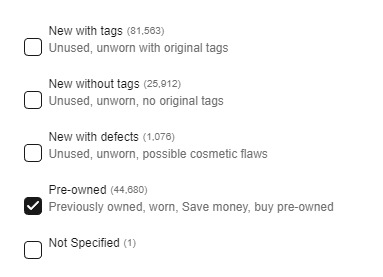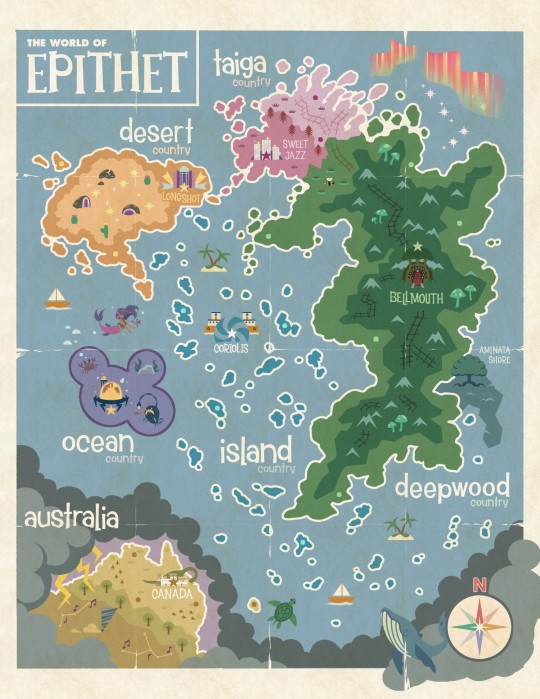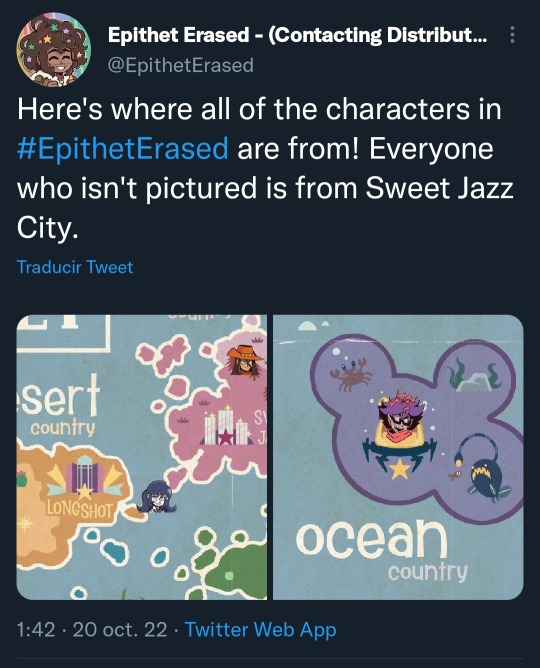#product search
Text
Looking for product 'Goldman Sachs Bucket Hat'
0 notes
Text
Okay wild ask here but does anyone know of any cute yet functional retro CD players out there? I have CDs of 1989 and rep (and my Midnights Late Night) that I want to play and the picking is SLIM folks
#every major store has record players but no cute cd players#like I get it maybe they’re not ‘old enough’ but hello I’m old#cd players#taylor swift#taylor swift cds#boombox#product search
0 notes
Text
online shopping : a comprehensive guide
INTRODUCTION
Electronic commerce, sometimes known as e-commerce, is the term used to describe the purchasing and selling of goods and services via the Internet, websites, mobile applications, or other digital media. It encompasses a variety of activities, including digital marketing, electronic payments, and online purchasing.
Online shopping is the act of buying products or services over the Internet, typically through an e-commerce platform. This can entail looking through and choosing things, placing them in a digital shopping cart, and completing the deal with an online payment system. Internet shopping is convenient and flexible because it enables customers to make purchases whenever and from wherever they are, without having to physically go to a store.
The use of electronic data interchange (EDI) by businesses to exchange business papers marked the beginning of electronic commerce in the 1960s.
The development of the Internet and the World Wide Web in the 1980s paved the way for the first online retail websites to appear. One of the earliest instances is the 1994-founded online book retailer Amazon. eBay, which started off in 1995 as an online auction site, and PayPal, which was established in 1998 to offer safe online payment processing, are two other early examples of e-commerce websites.
With the development of social media platforms, online marketplaces, and mobile commerce in the 2000s, e-commerce expanded quickly.
Today, e-commerce is a global industry, with billions of customers worldwide using the Internet to buy a wide range of goods and services.
The development of e-commerce, its effects on the retail sector, consumer behavior, online shopping, and the future of e-commerce.
I. Growth of e-commerce
I.1. Elements for e-commerce growth: Advances in technology
The development of e-commerce has been significantly influenced by technological advancements. Following are a few of the significant technological advancements that have contributed to the expansion of e-commerce:
Faster Internet connections: The widespread availability of dependable and quick Internet connections has aided in the expansion of e-commerce. Thanks to better internet speeds, businesses may now provide a seamless online buying experience with high-quality photos and videos and quick load times.
Mobile Devices: The widespread use of smartphones and tablets has helped e-commerce flourish. Consumers may now shop online at any time and from any location thanks to mobile devices, and businesses can also provide mobile-friendly websites and applications.
Cloud computing: As a result of cloud computing, it is now simpler and more affordable for organizations to store, process, and scale up their operations as they expand. Because of this, businesses of all sizes are now able to provide e-commerce solutions without having to spend money on costly IT infrastructure.
Artificial intelligence and machine learning developments have made it possible for companies to tailor the online shopping experience for each customer based on their interests and behavior.
Payment processing: The development of safe and practical online payment processing systems, such as credit card processing, PayPal, and other digital payment methods, has aided in the expansion of e-commerce. Making online purchases has become simpler and safer for customers thanks to these payment methods.
I.2. Elements for e-commerce growth: Proliferation of mobile devices
One of the main factors influencing the expansion of e-commerce in recent years has been the proliferation of mobile devices. Following are some instances of how the rise of e-commerce has been influenced by mobile devices:
The use of mobile internet has significantly increased as a result of the increasing adoption of smartphones and tablets. Consumers may now browse and shop online using their mobile devices and have access to the internet at any time and from any location.
Mobile applications: Connecting with clients and generating sales with mobile applications is a growing trend for organizations.
Mobile wallets and payment apps are only two examples of the mobile payment possibilities that have emerged as a result of the proliferation of mobile devices.
Mobile advertising has significantly increased as a result of the growth of mobile devices. Businesses can now target consumers with mobile ads that are specific to their interests and behavior.
Social Media: Online social networking sites like Facebook, Instagram, and Twitter have grown to be crucial sales channels for e-commerce.
I.3 Factors driving e-commerce growth: Popularity of online marketplaces
The emergence of online marketplaces is a significant influence on e-commerce.
Increased product variety: Compared to traditional physical stores, online marketplaces give customers access to a larger choice of goods.
Pricing competition: Internet marketplaces are renowned for their pricing competition, as vendors seek to give customers the greatest deals.
Convenience: Online marketplaces make it easy for customers to shop by letting them browse and buy products from a variety of merchants all in one location.
Trust and Reliability: To ensure the trust and dependability of the platform, several online marketplaces include buyer protection programs and other safeguards.
Global reach: Internet marketplaces have made it possible for companies to connect with clients on a global scale, creating new opportunities and fostering the expansion of e-commerce.
I.4. Statistics of the growth of e-commerce
Recent years have seen a tremendous increase in e-commerce, and this growth is projected to continue. These are some figures that demonstrate the size of the e-commerce growth:
By 2023, global e-commerce revenue is projected to increase from $3.53 trillion to $6.54 trillion. This is equivalent to an 18.1% compound annual growth rate (CAGR) (source: Statista).
E-commerce sales surged dramatically as a result of consumers changing their online shopping habits during the COVID-19 pandemic. E-commerce sales in the United States grew 44% in 2020 to $861 billion (source: Digital Commerce 360).
M-commerce, or mobile commerce, is also expanding quickly. M-commerce sales increased from 35.7% in 2018 to 45.1% of total global e-commerce sales in 2020. (source: Statista).
With 62.4% of all e-commerce sales occurring in the world's largest market, Asia-Pacific, in 2020 (source: eMarketer).
With projected net revenues of $386 billion in 2020, Amazon will be the largest e-commerce corporation in the world. Alibaba, JD.com, and Walmart are additional significant companies in the e-commerce sector (source: eMarketer).
I.5 . Comparison of e-commerce and traditional retail sales
Here is a contrast between traditional retail and e-commerce:
Convenience: One of e-main commerce's benefits is how convenient it is. Unlike traditional retail, which requires customers to physically visit a store during business hours, internet retail allows people to shop from anywhere, at any time, and via any device.
Choice: Compared to traditional retail, e-commerce provides a broader range of products. Internet merchants can provide a greater variety of products than traditional shops since they are not constrained by physical store space.
Price: Because e-commerce has a smaller overhead and more direct sales to customers than traditional retail, it frequently offers lower costs.
Personalization: With experienced employees and the chance to touch and test things, traditional retail can provide a more individualized buying experience. By targeting advertising and product recommendations based on user data, e-commerce can also provide increased customization.
Order fulfillment: As shipping and delivery services are frequently needed in e-commerce, clients may have to wait longer. With quick gratification provided by traditional retail, buyers can leave the store with their goods in hand.
Customer Experience: The general customer experience varies between traditional retail and e-commerce. E-commerce may provide a more streamlined and effective experience, whereas conventional retail may provide a more interesting and social one.
II. Impact on the retail industry
Competition from online stores is one of the main problems facing traditional retailers today.
Consumer behavior is evolving: As e-commerce has grown, consumers' preferences for online shopping have changed.
High operational expenses: Conventional brick-and-mortar stores have expensive overhead expenses like rent, utilities, and employee pay.
Conventional merchants must forecast demand and supply their storefronts appropriately, which presents inventory management challenges.
Restricted geographic reach: Because they can only draw clients from a specific area around their locations, traditional retailers may have a limited geographic reach.
Having trouble adjusting to trends: Conventional retailers may have trouble adjusting to shifting consumer preferences and trends.
The capacity to swiftly and easily compare prices is one of the key advantages of online buying. Customers may find the best deal quickly and buy the item from the online merchant with the best price. Because of this, traditional retail establishments find it difficult to stay competitive and frequently have to decrease their prices.
The employment situation in the retail industry has been significantly impacted by the growth of e-commerce and online shopping. Traditional retail establishments are experiencing diminishing revenues as more and more people purchase online, and they are frequently compelled to close their doors as a result. Several store employees have lost their jobs as a result of this.
In addition, the growth of e-commerce has opened up new career prospects in industries like shipping, logistics, and warehousing. Compared to traditional retailers, e-commerce retailers need a different set of skills and knowledge, and many of these professions call for specific training and education.
III. Consumer behavior and online shopping
For businesses to sell their goods and services successfully, cultivate client loyalty, and enhance the overall customer experience, they must have a solid understanding of consumer behavior.
Convenience is one of the major variables influencing consumer behavior when shopping online. Customers appreciate the ease of online shopping since it allows them to browse and buy goods without leaving the comfort of their homes.
Price is another significant aspect that affects consumer behavior while shopping online. Due to their high price sensitivity, consumers frequently evaluate prices across several e-commerce sites to get the best offer.
The simplicity with which e-commerce platforms can be used and navigated has an impact on consumer behavior as well. Platforms that are simple to use, have clear navigation and enable a quick checkout are preferred by customers.
Ultimately, online reviews and social proof have an impact on customer behavior. While making judgments about what to buy, consumers frequently go to reviews and advice from other shoppers. Negative reviews can significantly influence consumer behavior, but positive reviews and high ratings can increase credibility and confidence.
IV. Future of e-commerce
The future of e-commerce is dynamic and exciting, and many trends and advancements are anticipated to influence the sector in the years to come. The following are some of the major developments and e-commerce forecasts for the future:
Mobile commerce: As the use of smartphones and tablets rises, this sector of the e-commerce market is expected to become increasingly dominating.
Artificial intelligence: The e-commerce sector is poised to undergo a transformation thanks to the use of artificial intelligence (AI), with many businesses already utilizing chatbots and personalized product recommendations powered by AI to improve the customer experience.
Augmented Reality: With businesses embracing AR technology to offer virtual product demonstrations and trial experiences, augmented reality (AR) is also expected to play a significant role in the future of e-commerce.
Sustainability: Due to rising environmental and social responsibility awareness, e-commerce businesses are likely to prioritize sustainability in the future.
Delivery alternatives: As businesses take into account new delivery models like same-day delivery, drone delivery, and even autonomous delivery vehicles, delivery options are also expected to change.
CONCLUSION
In summary, e-commerce and online shopping have revolutionized how we purchase and sell goods and have grown to be a critical component of the world economy. The proliferation of mobile devices, technological advancements, and the acceptance of online markets have all contributed to the expansion of e-commerce. This growth has significantly impacted the retail industry, and traditional brick-and-mortar merchants are finding it difficult to keep up with shifting consumer tastes and the emergence of new retail models.
The ease, accessibility, and personalization that online shopping offers, as well as the availability of product information and reviews, have all had an impact on consumer behavior. E-commerce has a promising future, with ongoing growth and expansion into new markets and regions. Yet, there are also difficulties and barriers to getting over, such as market saturation, increasing competition, environmental impact, and security and fraud prevention.
#E-commerce#Online shopping#Digital commerce#Internet shopping#Virtual storefront#Shopping cart#Product search#Payment gateway#Mobile shopping#Customer reviews#Comparison shopping#Product information#Product delivery#Return policy#Customer service
1 note
·
View note
Text
Google reneged on the monopolistic bargain

I'm on tour with my new novel The Bezzle! Catch me TONIGHT in SALT LAKE CITY (Feb 21, Weller Book Works) and TOMORROW in SAN DIEGO (Feb 22, Mysterious Galaxy). After that, it's LA, Seattle, Portland, Phoenix and more!

A funny thing happened on the way to the enshittocene: Google – which astonished the world when it reinvented search, blowing Altavista and Yahoo out of the water with a search tool that seemed magic – suddenly turned into a pile of shit.
Google's search results are terrible. The top of the page is dominated by spam, scams, and ads. A surprising number of those ads are scams. Sometimes, these are high-stakes scams played out by well-resourced adversaries who stand to make a fortune by tricking Google:
https://www.nbcnews.com/tech/tech-news/phone-numbers-airlines-listed-google-directed-scammers-rcna94766
But often these scams are perpetrated by petty grifters who are making a couple bucks at this. These aren't hyper-resourced, sophisticated attackers. They're the SEO equivalent of script kiddies, and they're running circles around Google:
https://pluralistic.net/2023/02/24/passive-income/#swiss-cheese-security
Google search is empirically worsening. The SEO industry spends every hour that god sends trying to figure out how to sleaze their way to the top of the search results, and even if Google defeats 99% of these attempts, the 1% that squeak through end up dominating the results page for any consequential query:
https://downloads.webis.de/publications/papers/bevendorff_2024a.pdf
Google insists that this isn't true, and if it is true, it's not their fault because the bad guys out there are so numerous, dedicated and inventive that Google can't help but be overwhelmed by them:
https://searchengineland.com/is-google-search-getting-worse-389658
It wasn't supposed to be this way. Google has long maintained that its scale is the only thing that keeps us safe from the scammers and spammers who would otherwise overwhelm any lesser-resourced defender. That's why it was so imperative that they pursue such aggressive growth, buying up hundreds of companies and integrating their products with search so that every mobile device, every ad, every video, every website, had one of Google's tendrils in it.
This is the argument that Google's defenders have put forward in their messaging on the long-overdue antitrust case against Google, where we learned that Google is spending $26b/year to make sure you never try another search engine:
https://www.bloomberg.com/news/articles/2023-10-27/google-paid-26-3-billion-to-be-default-search-engine-in-2021
Google, we were told, had achieved such intense scale that the normal laws of commercial and technological physics no longer applied. Take security: it's an iron law that "there is no security in obscurity." A system that is only secure when its adversaries don't understand how it works is not a secure system. As Bruce Schneier says, "anyone can design a security system that they themselves can't break. That doesn't mean it works – just that it works for people stupider than them."
And yet, Google operates one of the world's most consequential security system – The Algorithm (TM) – in total secrecy. We're not allowed to know how Google's ranking system works, what its criteria are, or even when it changes: "If we told you that, the spammers would win."
Well, they kept it a secret, and the spammers won anyway.
A viral post by Housefresh – who review air purifiers – describes how Google's algorithmic failures, which send the worst sites to the top of the heap, have made it impossible for high-quality review sites to compete:
https://housefresh.com/david-vs-digital-goliaths/
You've doubtless encountered these bad review sites. Search for "Best ______ 2024" and the results are a series of near-identical lists, strewn with Amazon affiliate links. Google has endlessly tinkered with its guidelines and algorithmic weights for review sites, and none of it has made a difference. For example, when Google instituted a policy that reviewers should "discuss the benefits and drawbacks of something, based on your own original research," sites that had previously regurgitated the same lists of the same top ten Amazon bestsellers "peppered their pages with references to a ‘rigorous testing process,’ their ‘lab team,’ subject matter experts ‘they collaborated with,’ and complicated methodologies that seem impressive at a cursory look."
But these grandiose claims – like the 67 air purifiers supposedly tested in Better Homes and Gardens's Des Moines lab – result in zero in-depth reviews and no published data. Moreover, these claims to rigorous testing materialized within a few days of Google changing its search ranking and said that high rankings would be reserved for sites that did testing.
Most damning of all is how the Better Homes and Gardens top air purifiers perform in comparison to the – extensively documented – tests performed by Housefresh: "plagued by high-priced and underperforming units, Amazon bestsellers with dubious origins (that also underperform), and even subpar devices from companies that market their products with phrases like ‘the Tesla of air purifiers.’"
One of the top ranked items on BH&G comes from Molekule, a company that filed for bankruptcy after being sued for false advertising. The model BH&G chose was ranked "the worst air purifier tested" by Wirecutter and "not living up to the hype" by Consumer Reports. Either BH&G's rigorous testing process is a fiction that they infused their site with in response to a Google policy change, or BH&G absolutely sucks at rigorous testing.
BH&G's competitors commit the same sins – literally, the exact same sins. Real Simple's reviews list the same photographer and the photos seem to have been taken in the same place. They also list the same person as their "expert." Real Simple has the same corporate parent as BH&G: Dotdash Meredith. As Housefresh shows, there's a lot of Dotdash Meredith review photos that seem to have been taken in the same place, by the same person.
But the competitors of these magazines are no better. Buzzfeed lists 22 air purifiers, including that crapgadget from Molekule. Their "methodology" is to include screenshots of Amazon reviews.
A lot of the top ranked sites for air purifiers are once-great magazines that have been bought and enshittified by private equity giants, like Popular Science, which began as a magazine in 1872 and became a shambling zombie in 2023, after its PE owners North Equity LLC decided its googlejuice was worth more than its integrity and turned it into a metastatic chumbox of shitty affiliate-link SEO-bait. As Housefresh points out, the marketing team that runs PopSci makes a lot of hay out of the 150 years of trust that went into the magazine, but the actual reviews are thin anaecdotes, unbacked by even the pretense of empiricism (oh, and they loooove Molekule).
Some of the biggest, most powerful, most trusted publications in the world have a side-hustle in quietly producing SEO-friendly "10 Best ___________ of 2024" lists: Rolling Stone, Forbes, US News and Report, CNN, New York Magazine, CNN, CNET, Tom's Guide, and more.
Google literally has one job: to detect this kind of thing and crush it. The deal we made with Google was, "You monopolize search and use your monopoly rents to ensure that we never, ever try another search engine. In return, you will somehow distinguish between low-effort, useless nonsense and good information. You promised us that if you got to be the unelected, permanent overlord of all information access, you would 'organize the world's information and make it universally accessible and useful.'"
They broke the deal.
Companies like CNET used to do real, rigorous product reviews. As Housefresh points out, CNET once bought an entire smart home and used it to test products. Then Red Ventures bought CNET and bet that they could sell the house, switch to vibes-based reviewing, and that Google wouldn't even notice. They were right.
https://www.cnet.com/home/smart-home/welcome-to-the-cnet-smart-home/
Google downranks sites that spend money and time on reviews like Housefresh and GearLab, and crams botshittened content mills like BH&G into our eyeballs instead.
In 1558, Thomas Gresham coined (ahem) Gresham's Law: "Bad money drives out good." When counterfeit money circulates in the economy, anyone who gets a dodgy coin spends it as quickly as they can, because the longer you hold it, the greater the likelihood that someone will detect the fraud and the coin will become worthless. Run this system long enough and all the money in circulation is funny money.
An internet run by Google has its own Gresham's Law: bad sites drive out good. It's not just that BH&G can "test" products at a fraction of the cost of Housefresh – through the simple expedient of doing inadequate tests or no tests at all – so they can put a lot more content up that Housefresh. But that alone wouldn't let them drive Housefresh off the front page of Google's search results. For that, BH&G has to mobilize some of their savings from the no test/bad test lab to do real rigorous science: science in defeating Google's security-through-obscurity system, which lets them command the front page despite publishing worse-than-useless nonsense.
Google has lost the spam wars. In response to the plague of botshit clogging Google search results, the company has invested in…making more botshit:
https://pluralistic.net/2023/02/16/tweedledumber/#easily-spooked
Last year, Google did a $70b stock buyback. They also laid off 12,000 staffers (whose salaries could have been funded for 27 years by that stock buyback). They just laid off thousands more employees.
That wasn't the deal. The deal was that Google would get a monopoly, and they would spend their monopoly rents to be so good that you could just click "I'm feeling lucky" and be teleported to the very best response to your query. A company that can't figure out the difference between a scam like Better Homes and Gardens and a rigorous review site like Housefresh should be pouring every spare dime it brings in into fixing this problem. Not buying default search status on every platform so that we never try another search engine: they should be fixing their shit.
When Google admits that it's losing the war to these kack-handed spam-farmers, that's frustrating. When they light $26b/year on fire making sure you don't ever get to try anything else, that's very frustrating. When they vaporize seventy billion dollars on financial engineering and shoot one in ten engineers, that's outrageous.
Google's scale has transcended the laws of business physics: they can sell an ever-degrading product and command an ever-greater share of our economy, even as their incompetence dooms any decent, honest venture to obscurity while providing fertile ground – and endless temptation – for scammers.

If you'd like an essay-formatted version of this post to read or share, here's a link to it on pluralistic.net, my surveillance-free, ad-free, tracker-free blog:
https://pluralistic.net/2024/02/21/im-feeling-unlucky/#not-up-to-the-task
#pluralistic#monopoly#seo#dark seo#google#search#enshittification#platform decay#product reviews#spam#antitrust#trustbusting
716 notes
·
View notes
Text






#someone’s probably already made a gifset or these or smth but#i dont wanna search for it bc i havent finished it yet and dont wanna se spoilers#but also i love the energy of no context starkid screenshots#starkid#team starkid#starkid productions#nerdy prudes must die#npmd#starkid npmd#also i will add alt text or reblog w picture descnor smth im the mornign but im high as Balls watching this rn#and the amoutn of typos i would privably make is horrifying and it will probably be more benficial to wait until i cna actually type
819 notes
·
View notes
Text
at last....yakumo with CHIKEN

#i have finally achieved Goal. i drew yakumo with a happy chickcen#legitimately there were several moments of me redrawing yakumo's eyes and yelling#nO! THEY'RE NOT UWU ENOUGH (makes the irises bigger) WAIT . TOO UWU (makes irises more oblong)#WAIT!! NOT MONSTROUS ENOUGH (narrows the pupils) SHOULD NOT HAVE MORE EYELINER THAN FOXY GRANDPA (shrinks the lashes)#did u know that chickens like to sleep on tall things? the higher they are the safer they feel? (according to my cursory internet search)#so i imagine when yakumo finally grew taller than the chickens' roosting spots#some of them started just napping on yakumo any time he came to clean the coop#and he'd be so scared of waking them up that he'd try to do his chores in the tiniest movements ever#several hours later grandma checks in on him bc hmmm! he's taking longer than usual!#sees him covered in birds+bird poop and he's aaaallllmost done cleaning with his restrained broom sweeps#(birds don't stop pooping just cuz they're sleeping u see. how productive)#that's a cue for grandparents to move the roosts higher . bc yakumo doesn't have the heart to shoo the birds off him#he needs to get things done! becoming impromptu bird bed for 3 hours a day is not sustainable!#it's all for the good of chiken anyway. happy chicken happy life#nu carnival yakumo
185 notes
·
View notes
Text
Greek Gods being desgined as colorful rainbow people my beloved









#schibi rambles#greek gods#greek mythology#osp#overly sarcastic productions#disney hercules#destripando la historia#dlh#i know lore olympus also does this i just havent read it thats why i didnt include it#also last 3 pic might be the most niche and underrated thing i have ever referenced#but i highly recommend it they are story/myth retellings done in song form each done with a different sound/genre#its all in youtube search destripando la historia and youre welcome
578 notes
·
View notes
Text

The council shall decide your fate
#I was just searching up the Glitch Expo site dfkngkjdgn#Spooky Month#Murder Drones#The Amazing Digital Circus#Helluva Boss#Bob#Pomni#GlitchX#Glitch Productions
338 notes
·
View notes
Note
ironically i love thrifting but ive never thought about using ebay, do you have any tips or keywords you use on it to find deals and shifty stuff/wording to look out for?
honestly I don't find ebay to be shifty for buying stuff! people are scared about using it sometimes and I think it's a little funny lol
I guess the tip would be that if you search for an item with vague enough terms, you'll get some SHEIN-esque mass produced clothes muddying the results. and you know it when you see it, because those listings look like shit btw. this type of thing:

like, these are real listings and everything, and you'd get the product, but they are obviously not what you're looking for.
you can ignore these, but if you want to filter them out, you can just narrow the search to SPECIFICALLY pre-owned items.

There isn't really any wording to look out for-- the only other thing would just be to make sure the stuff you get can be returned, bc sellers can specify whether or not they'll take the items back!

#aside from that you can search by brand if you're looking specifically for like. modcloth dresses#you can look for that! and obviously it lets you sort by size and color and whatever#people post pics of the clothes on a hanger or laying flat on a bed/table or on a mannequin#or they'll reupload the original product photo from the origin website lol and that's fine too. honestly sometimes prefer that.#people really optimize search terms on there so you can be vague or specific it doesn't really matter#I think pre-op I was looking for button up pajama tops. bc they're soft and have fewer buttons. and I looked exclusively for pre-owned#so they'd be cheap lol#ebay is really strict actually and if an item doesn't show up or there's a hole in a shirt or whatever you aren't left in the lurch#and the sellers really really want good ratings#sergle answers#It's a problem though actually bc I really really really like shopping for clothes. but also. I got no money#there's lots of great stuff ppl put on ebay instead of in a physical thrift store
138 notes
·
View notes
Text

Let's build the Science Patrol's Jet VTOL!
#Ultraman#Science Patrol#Science Special Search Party#SSSP#Jet VTOL#mecha#tokusatsu#Tsuburaya Productions#blueprints#cutaway diagram#schematics
35 notes
·
View notes
Text


Shoes !!
#mitzdraws#i always feel so productive past 1 in the morning#boots#art#artists on tumblr#drawing#sketchbook#also im pretty sure those arent real boot names.just what i need to search on Pinterest for references
116 notes
·
View notes
Text
GOOD NEWS EVERYONE, BEING SAD IS CANCELLED FOREVER
#HOLY FUC KINGSHIT#IF THIS GOES INTO PRODUCTION#CATCH ME NEVER EVER SHUTTING UP ABOUT IT#EVER AGAIN#[unless it turns out worse than Reborn.... but shhhh let's not tempt fate here]#AAAAAAAHHHH#IDC IF NO ONE ELSE CARES#I CARE#I WANT IT!!!!!!#primatech#nbc heroes#heroes eclipsed#(posting without the ':' for easier tag search purposes)
33 notes
·
View notes
Text

No matter how many hundreds, thousands, or million days...

No matter how long it will be...

May our love last forever.
[1000 Years Old, 1.01, 1.02, 1.12]
#they were always searching for each other and they always will be#i am unwell#it's been almost 12 hours since i watched the finale and i'm still not okay but it's time to go to bed i guess#the way the sky combined the blue and gold lighting from the first two shots of them each alone in the final shots of them just wrecked me#this show was so visually stunning in a very different way than some QLs that are more known for their cinematography and production qualit#like look at the details! the gold and blue skies coming together! the element of red in each shot! the blowing curtain and black umbrella!#i have to relearn my gif process because all my presets are gone so these aren't great but it's a start#where do we all even go from here#1000 years old#1000 years old the series#1000 years old finale#umbrella posting#umbrella propaganda#mia gifs things#mia gifs 1000 years old things#mia gifs drama things
36 notes
·
View notes
Text
A quick doodle for tonight's posttttt

I love her. I. Just. Love her. She is me and me is her.
(i also love the ep's insanity, guess im in)
#tadc#tadc gangle#gangle#the amazing digital circus#smg4#glitch productions#she looks like a puppet#or maybe she is#the moment i got interested after i saw midnightfire's post#i immediately search for tadc in google#then scrolled thru the fandom wiki#but ofc i was surprise it was made by the same ppl of smg4 (glitch productions .at least thats what i know)#then i found gangle. i immediately fell inlove w/ her design sooo i decided to watch it#i will never regret this decision to love her. i can relate to her#--and partially to pomni#sirensea#siren screams#shit i accidentally added another series in my watchlist#but i rarely do it tho .so ig this is worth it#k im too noisy in the tags here XDDDDD
79 notes
·
View notes
Text
if any fellow r&g are dead fans have links to recordings of productions of the show that are good/fun/interesting, would you consider perhaps sending them my way? pretty please?
#rosencrantz and guildenstern are dead#ragad#my asks and messages are both open - or you can just reblog this post#i found a few with a basic search on youtube but any peer-reviewed productions get top priority#i know people particularly like that 2017 production from the national live theater but if there’s a recording i could not find it :(
148 notes
·
View notes
Text
For anybody curious here's the full official map for the Epithet Erased world taken straight up from the Official Twitter


Bonus:



#epithet erased#cartoons#Cartoon#Animation#Youtube#Shows#TV#molly blyndeff#giovanni potage#sylvester ashling#zora salazar#ramsey murdoch#percival king#mera salamin#indus tarbella#Also production in Prison of Plastic has finally ended and now they are searching for distribution#It's coming sometime between tomorrow and the 31 of December
494 notes
·
View notes